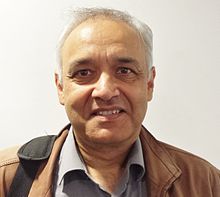
The Committee for Skeptical Inquiry (CSI), formerly known as the Committee for the Scientific Investigation of Claims of the Paranormal (CSICOP), is a program within the U.S. non-profit organization Center for Inquiry (CFI), which seeks to "promote scientific inquiry, critical investigation, and the use of reason in examining controversial and extraordinary claims." Paul Kurtz proposed the establishment of CSICOP in 1976 as an independent non-profit organization, to counter what he regarded as an uncritical acceptance of, and support for, paranormal claims by both the media and society in general. Its philosophical position is one of scientific skepticism. CSI's fellows have included notable scientists, Nobel laureates, philosophers, psychologists, educators, and authors. It is headquartered in Amherst, New York.

Scientific skepticism or rational skepticism, sometimes referred to as skeptical inquiry, is a position in which one questions the veracity of claims lacking empirical evidence. In practice, the term most commonly refers to the examination of claims and theories that appear to be beyond mainstream science, rather than the routine discussions and challenges among scientists. Scientific skepticism differs from philosophical skepticism, which questions humans' ability to claim any knowledge about the nature of the world and how they perceive it, and the similar but distinct methodological skepticism, which is a systematic process of being skeptical about the truth of one's beliefs.

Christopher (Chris) Charles French is a British psychologist who is prominent in the field of anomalistic psychology, with a focus on the psychology of paranormal beliefs and anomalous experiences. In addition to his academic activities, French frequently appears on radio and television to provide a skeptical perspective on paranormal claims.

The Irish Skeptics Society (ISS) is a scientific skeptical organisation based in Ireland. It was launched in December 2002 and publishes a newsletter called Skeptical Times. The ISS is a member of the European Council of Skeptical Organisations (ECSO).

Steven Paul Novella is an American clinical neurologist and associate professor at Yale University School of Medicine. Novella is best known for his involvement in the skeptical movement as a host of The Skeptics' Guide to the Universe podcast and as the president of the New England Skeptical Society. He is a fellow of the Committee for Skeptical Inquiry (CSI).
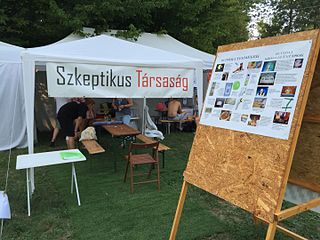
The Hungarian Skeptic Society (HSS) (Hungarian: Szkeptikus Társaság Egyesület) is a skeptic organisation based in Hungary. Founded in 2006, it has been a member of the European Council of Skeptical Organisations (ECSO) since 2007. Its former president, Gábor Hraskó was also chairman of ECSO from 2013 to 2017. The current president, András Gábor Pintér who has been a board member of ECSO since 2017, is also the initiator, producer & co-host of the European Skeptics Podcast.

Willem (Wim) Betz was a Flemish physician and professor emeritus at the Belgian university Vrije Universiteit Brussel (VUB), where he was head of the center for training in general medical practice until November 2007. Betz was a leading skeptic in Flanders and participant in the EU COST B4 Project. He was a founding member, president and vice-president of the Belgian skeptic organisation SKEPP.

The European Council of Skeptical Organisations (ECSO) is an umbrella of organisations defending scientific skepticism in Europe.

The Gesellschaft zur wissenschaftlichen Untersuchung von Parawissenschaften (GWUP) is a non-profit organisation promoting scientific skepticism, headquartered in Roßdorf, Germany. Its estimated membership in 2016 is 1300 who are scientists or laypersons interested in science. The GWUP annually hosts a conference with varying key subjects.
European Skeptics Congresses (ESCs) – a series of congresses now supported by the European Council of Skeptical Organisations (ECSO), in which skeptical organisations from many different European countries participate. They have been held ever since 1989. The conferences are often held in the month of September, and may last from two up to four days. The ECSO was formed at the 6th ESC on 25 September 1994 in Ostend, Belgium. Since its foundation, the ECSO co-ordinates in the organisation of new ESCs that take place every other year, and is hosted by a different member organisation each time. Skeptical organisations that are non-ECSO members may also send their delegations. Past ESCs are enumerated below.

Catharina Jantina (Catherine) de Jong is a Dutch anesthesiologist, drug rehab physician, intensivist, since 2009 board member of the Vereniging tegen de Kwakzalverij (VtdK), between 2011–2015 as chair, and board member of the European Council of Skeptical Organisations (ECSO).
QED: Question, Explore, Discover is an annual skeptical conference held in Manchester, England. QED is organised by North West Skeptical Events Ltd (NWSE), a volunteer-owned non-profit organisation originating from a collaboration between the Merseyside Skeptics Society and the Greater Manchester Skeptics Society.

Klub Sceptyków Polskich or KSP is a non-profit, non-governmental organisation actively engaged in the promotion of critical thinking, scientific skepticism and scientific methods. It unites scientists and people interested in science and scientific research in Poland.
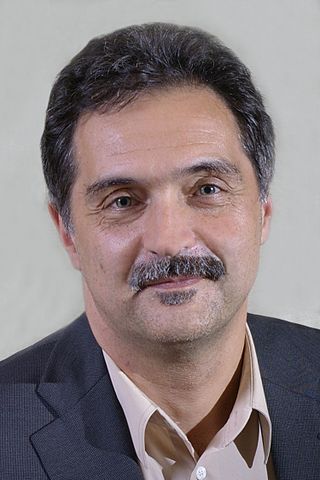
Gábor Hraskó is a Hungarian science communicator and skeptic, well known within the Hungarian and international movement as the president of the Hungarian Skeptic Society and chairman of the European Council of Skeptical Organisations (2013-2017). He is a member of the Club of Hungarian Science Journalists, author of the "X-Aknák" popular science blog, and was co-editor and co-host of the television series of the same name. Hraskó is a scientific and technical consultant for the Committee for Skeptical Inquiry.
The Deutsche Gesellschaft zur Bekämpfung des Kurpfuschertums was a skeptical association founded in 1903 for consumer protection against quackery. It opposed the Kurierfreiheit, that existed in Germany from 1869/1872 until the adoption of the Heilpraktikergesetz in 1939. The association originated after the example of the Deutsche Gesellschaft zur Bekämpfung der Geschlechtskrankheiten, and is counted as one of the predecessors of the Gesellschaft zur wissenschaftlichen Untersuchung von Parawissenschaften (GWUP).

CSICon or CSIConference is an annual skeptical conference typically held in the United States. CSICon is hosted by the Committee for Skeptical Inquiry (CSI), which is a program of the Center for Inquiry (CFI). CSI publishes the magazine Skeptical Inquirer.
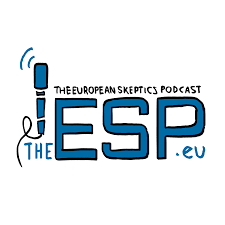
The European Skeptics Podcast (TheESP) is a weekly podcast recorded in English and hosted by three skeptics from several different European countries: András Gábor Pintér from Hungary, Pontus Böckman from Sweden and Annika Harrison from Germany who joined the team in July 2020. The main goal of the podcast is to "support European level actions within the skeptical movement and build bridges among skeptics" all over the continent. The show is often jokingly referred to by other podcasters and people interviewed on the show as "the REAL ESP experience" referring to a namesake pseudoscientific concept.

Český klub skeptiků Sisyfos is a Czech skeptical nonprofit organisation founded in 1994 and headquartered in Prague. Its primary goal and mission is to spread and defend the findings and results of contemporary science, to promote rational, critical thinking, to acquaint the public with the principles of scientific method, to speak out against the spread of paranormal ideas and unproven procedures, to ensure that universities, scientific societies and institutions are actively responsible for defending science and critical thinking, to investigate controversies and false claims, to provide assistance to citizens in protecting against fraudulent products and ineffective or dangerous alternative medicine products and healing methods. In line with mission and goals, the club refuses to interfere with religious, moral and political issues.
Irmgard Oepen was a German physician and medical journalist. She was known for her steadfast criticism of alternative medicine, especially of homeopathy.
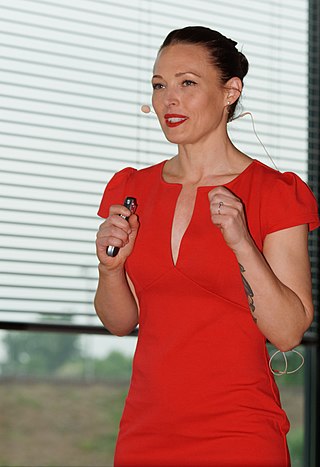
Anna Zakrisson is a Swedish science communicator and scientist living in Berlin.
